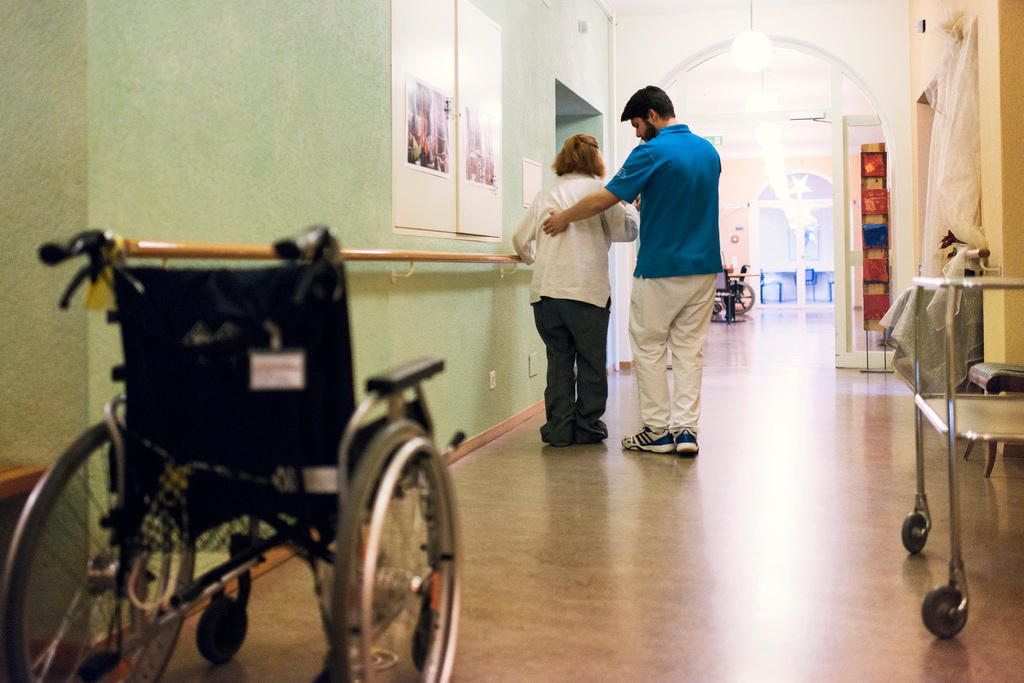
Survey: one in two care workers wants to quit

Almost 50% of staff working in care professions in Switzerland want to leave their jobs, according to report by trade union Unia. The reasons: poor working conditions, stress and lack of work-life balance.
Unia said the results of survey of around 1,200 people working in long-term care in places like old-age and nursing homes were “alarming”: 47% of those asked could not envisage staying in the profession until retirement; 34% were unsure. 86% felt tired and burned out.
The main reason was pressure arising from working conditions, like staff shortages, and health problems, physical and stress-related, linked to their jobs. “It is even more alarming that most of those asked were 30 years old or younger, many of them only recently working in the profession,” Unia said in a statement on Friday.External link
In all, 87% felt they did not have enough time for their charges.
A young care worker in a report on Swiss public television’s 10 vor 10 news programme – while saying she wanted to stay in her profession – confirmed that she was dealing with increased administrative tasks.
What can be done
Unia is therefore calling for more staff and better working conditions to make the profession more attractive. “It needs better pay, a better shift system, but to achieve this we need better financing of care, both of the profession and of old-age and nursing homes,” Samuel Burri, head of the care sector at Unia, said.
Heidi Hanselmann, head of health department in canton St Gallen and deputy director of the Swiss Conference of Cantonal Health Directors, commented on the fact that more than 60% of those surveyed were under 30. She told 10 vor 10 that companies should – any many already did – offer more modern, attractive working practices that would help combine family and work.
The head of the old people’s home in Engelberg, central Switzerland, featured in the television report said that in canton Obwalden they could afford good staff cover because of adequate financing.
But she could see in cases where there was not enough financing, pressure to cut costs mount and this impacts staff, becoming a negative spiral that is difficult to leave.

More
Meeting the urgent need for care in nursing homes

In compliance with the JTI standards
More: SWI swissinfo.ch certified by the Journalism Trust Initiative






























You can find an overview of ongoing debates with our journalists here . Please join us!
If you want to start a conversation about a topic raised in this article or want to report factual errors, email us at english@swissinfo.ch.